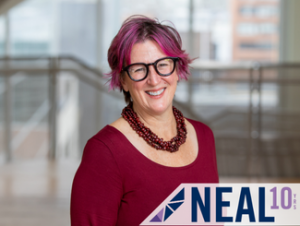Latest News


We caught up with the new Program Lead for the New and Evolving Academic Leaders (NEAL) program, Dr. Cate Creede. This is the 10th year of the NEAL program, and we were excited to learn more from Cate about the past, present and future of the program. Here’s some of what was shared in our recent conversation:
Q: Cate, first of all, congratulations on your transition this year in your new role as Program Lead of NEAL! As you celebrate this significant milestone of 10 years of the NEAL program alongside Dr. Susan Lieff and Manpreet Saini, what are you most proud of?
A: Well first – 10 years! That’s a total of nearly 300 people who are having a meaningful impact in all of the spaces they are working in – public health, health equity, leading hospitals through the pandemic, cutting edge science, creating new networks to transform care – endless spheres of influence. I can’t count the number of times I hear someone’s voice on CBC talking about some significant change in health sciences and think “that’s a NEAL alum!” They are a magnificent cohort of humans who are having an amazing impact on the world. That’s what I’m most proud of contributing to.
Q: Reflecting back, how has the program continued to evolve over the years?
A: We’ve always had the perspective that NEAL needs to continually evolve as the world evolves – in how we teach, how we co-create community, and what we focus on in the curriculum. But I think the most visible shift over the past decade is an increasing focus on inclusive leadership and actively equipping people to change and influence equity in our systems.
On the surface, that means continually integrating conversations into our curriculum about power and access, about structural equity, about racism and what it means to be an ally. But the increasing visibility of those topics is reflected by who is in the program. Ten years ago, more of our participants were there because they had a newish role with positional authority, and they wanted to know how to do that role really successfully. Now, far more of our learners are there because they recognize the need for change in the system, and they need to be equipped to advocate for or influence change beyond their roles. We will keep evolving the program to build capacity among these change-makers, while still equipping people to run the system well.
Q: You and Susan Lieff have been effective collaborators in the design and delivery of the NEAL and share a very special relationship and complementary skillset over these 10 years of the program. As Susan’s role transitions at the CFD, what will you miss the most?
A: First, I’m super glad that Susan will continue to be core faculty in NEAL. We’ve co-created this over time, and her voice is a critical aspect of the program. And I look forward to seeing what she does next beyond NEAL!
And in her role change, I think what I’ll miss most is her insider understanding. Susan is, simultaneously, a fierce scholar, committed educator, visionary leader and passionate clinician. And – doing this many complex roles at once? That’s what our learners are doing too. Leaders in other environments have complicated jobs, but the impact, consequence and complexity are unique to academic health sciences. Susan brings both lived experience and a critical lens on what it means to be a leader in this context.
I bring a different lens. I have worked in the sphere of academic health sciences since 2006 as a consultant, educator and coach – but I’m more of an “embedded outsider” than a person enculturated within this system. I’ve learned a lot from Susan about what our learners need.
Q: How has the NEAL program and your involvement in it shaped your own leadership journey?
Q: The CFD’s strategic plan in centered on a deep commitment to embodying the principles of Anti-Oppression and Anti-Racism. How would you describe how these principles influence your own work at the CFD and within the broader system?
A: I’m going to answer these two questions together because they’re completely intertwined for me.
First, my own leadership. Ironically, like a lot of our learners –I don’t foremost think of myself as a leader – I think of myself as a person trying to make a difference in the world driven by my own values and sense of purpose. Leadership has sort of come along for the ride as I learned how to fulfill that sense of purpose more effectively.
That leadership has always been about social justice at the root. As a female-bodied, queer settler human who uses the pronouns she/they, I’ve been an advocate for intersectional feminist, anti-oppression, decolonizing change since the 1980s.
Apart from NEAL, I have two other major roles. One is running a learning and development program in Uganda. The other is strategy and change leadership consulting and coaching in higher education and academic health science. All of these have shaped the kind of leader I am today – especially my fundamental curiosity, and the humility of accepting what I don’t know. A core part of that has been grappling with my own internalized biases and the centrality of the privilege of my whiteness, letting go of some assumptions about what I can and can’t influence.
One big shift I’m paying attention to right now is recognizing that allyship is not just about increasing visibility and representation of diverse and marginalized voices in the existing system, but to fundamentally change that system. We – especially the white, settler “we’s” – have an accountability to learn to be the kind of allies that are about continual learning and listening and also not leaving the hard emotional labour to racialized people.
A big part of my work is with the people who have positional authority, to help bring them along the journey – recognizing that it’s a big, complex ask to simultaneously lead and sustain the health and education system we need while also dramatically transforming what power means.
This isn’t a one-off conversation – it’s a moment in time in a life’s work! And it’s what excites me more than anything.
Q: You are about to welcome the 2022-2023 cohort of NEAL, for a fully virtual program delivery. What can program participants expect this year?
A: In simple terms, participants can expect an immersive and transformative experience where they get to engage with their own sense of purpose, build their resources for all the things they are tasked to do, and develop a new community of peers. They can also expect faculty who are deeply committed to helping learners see their role in the systems around them, and develop the capacity to influence change in those systems.
One of my personal goals is to help learners see the water they are swimming in – to go from feeling like “this is the way it is and I have to conform and navigate within it,” to “yes, this is the system I am in, but I have more power to influence it than I thought I did.”
And, at this point in history – they can also expect a healthy dose of encouragement to take care of themselves. People and resources are stretched super thin, and creating a more sustainable, resilient system is a long haul project. We need to sustain our wellbeing for that.
Q: As you reflect on this significant inflection point in the program, what are you most excited about for NEAL’s future?
A: Continuing to evolve what the program does in collaboration with all of the brilliant and commitment humans around me – including alumni and voices we haven’t connected with before.
Q: I understand that the NEAL program’s application and selection process is currently being refined, with details to follow in coming months on the CFD website. For those contemplating applying for 2023-2024, who should consider NEAL as part of their leadership development?
A: Come to NEAL if you want your leadership or influence in the academic health science system to have a lasting impact on building a more sustainable, equitable, inclusive and accessible system. We will keep building our community of what our core faculty Nouman Ashraf calls “emancipatory leadership” together!
See all Latest News.
